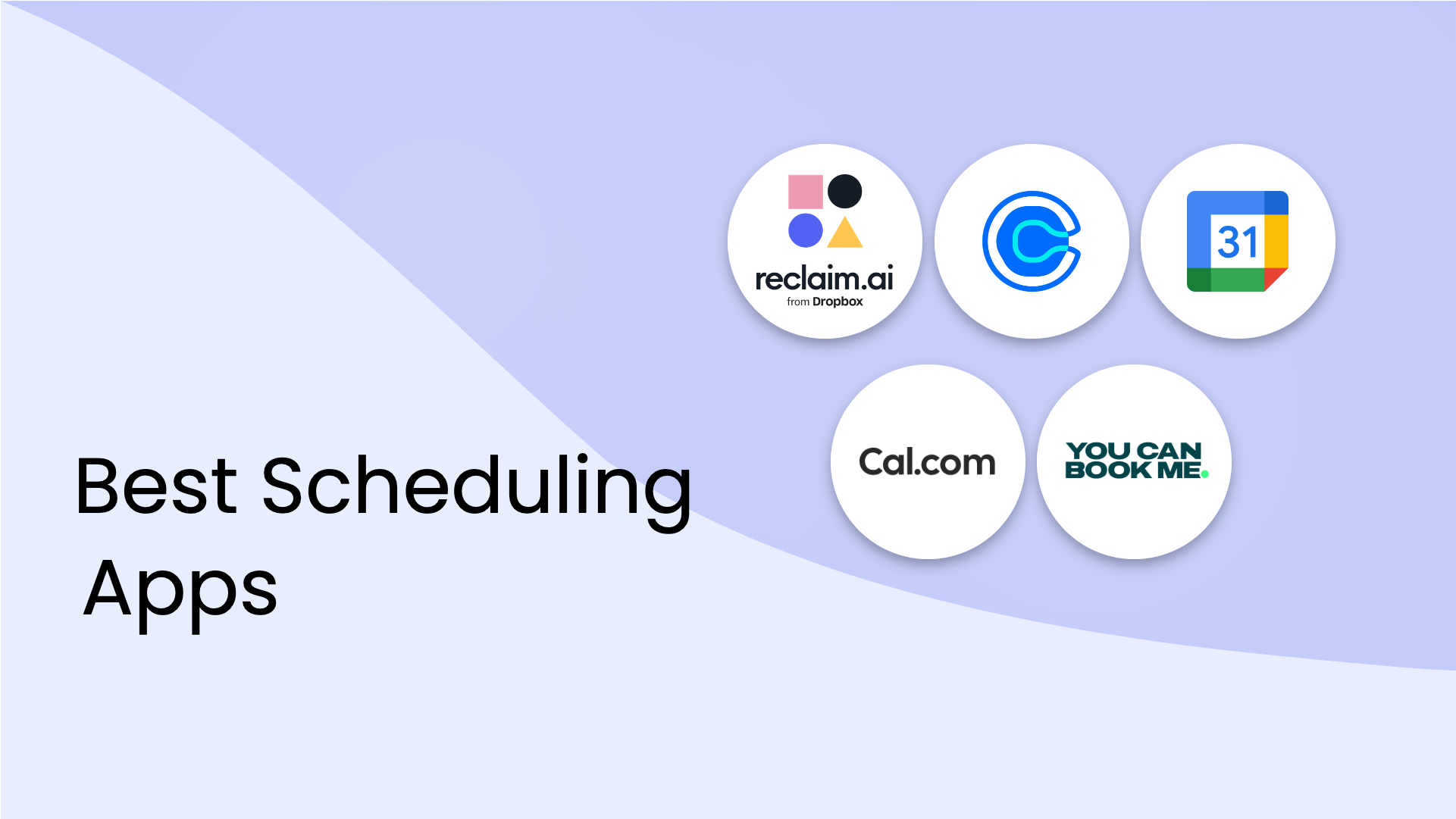You wake up on Monday morning, grab your coffee, and scroll through emails. Another week begins, and while you have tasks to check off, meetings to attend, and responsibilities to juggle, you can’t shake the feeling that you’re just going through the motions. Maybe you’ve meant to switch careers, start exercising more, or finally learn that skill you keep putting off – but somehow, life keeps getting in the way.
Advancing in your career, building healthier habits, or pursuing a passion – these are just a few examples of personal goals you can set to become the person you aspire to be.
Without any personal goals, you might feel like a ship adrift at sea – moving, but without a clear destination. They guide our days, help us focus on what matters, and provide a sense of purpose that keeps us motivated, even in challenging times.
Of course, goal-setting isn’t always easy. If it was, articles such as these wouldn’t be necessary. Many feel overwhelmed, unsure of where to start, or discouraged by setbacks along the way. But, in this guide, we’ll give you practical steps and show you what really works when it comes to setting personal goals.
What are personal goals?
Personal goals are the milestones we set for ourselves to achieve growth, happiness, and fulfillment in life. Maybe it's learning to play the guitar, writing a novel, or finally getting in shape. It's easy to think of personal goals as just another thing on your to-do list, but they're deeper aspirations to develop your personal growth, discover your strengths, and create a life that truly excites you.
There are many different types of personal goals: long-term goals, professional goals, self-development goals, financial goals, etc.. But your most important personal goals, in their purest form, are about the things that truly matter to you – the things that personally bring you joy, fulfillment, and a sense of purpose.
But, wait...sounds a lot like priorities, right? Sure, they're undeniably similar, but not quite the same. Priorities are the broader categories, like "family," "health," or "career." Goals, on the other hand, are the specific steps you take within those priorities. For example, if "professional growth" is a priority, a goal might be to get certified in a new skill or land a promotion.
Personal goal examples
Personal goals touch every part of our lives, giving us chances to grow, feel fulfilled, and find purpose. These personal goal examples can spark some inspiration for your own, whether you're aiming for quick wins or dreaming big about long-term changes.
Health goals
- Lose weight and achieve a healthier BMI.
- Train and complete a marathon.
- Exercise three times a week
- Incorporate healthier foods into your diet.
- Improve flexibility and range of motion.
- Quit smoking.
- Reduce alcohol consumption.
- Get at least 7 hours of sleep each night.
Career goals
- Learn a new skill, like coding or public speaking skills, to advance your career.
- Secure a promotion.
- Change career industries.
- Complete a professional certification to enhance your expertise.
- Build a strong professional network.
- Develop a strong personal brand.
- Find a work-life balance that supports your overall well-being.
Financial goals
- Save for a house or a significant purchase.
- Eliminate debt to reduce stress and improve financial health.
- Build an investment portfolio to achieve long-term wealth or retire early.
- Increase your income through a side hustle or starting your own business.
- Develop a plan for retirement.
- Improve your credit score.
Personal development goals
- Read a new book every month.
- Learn a new language to connect with other cultures.
- Develop a creative hobby like painting or gardening.
- Travel to new places to broaden your horizons and experience different cultures.
- Develop a stronger sense of self-compassion and self-acceptance.
- Volunteer in your community to make a positive impact and connect with others.
Relationship goals
- Strengthen bonds with family through shared activities or regular check-ins.
- Improve communication skills to promote deeper understanding in relationships.
- Make time for friends to deepen meaningful connections.
- Prioritize quality time with your partner.
- Show appreciation and express gratitude to loved ones.
- Build and maintain healthy boundaries in your relationships.
Spirituality goals
- Practice mindfulness through daily meditation or yoga.
- Engage in community service to give back and find fulfillment.
- Explore spiritual practices or traditions aligned with your values.
- Prioritize inner peace and cultivate a sense of inner calm amidst the busyness of life.
- Connect with nature through activities like hiking, camping, or simply spending time outdoors.
- Develop a deeper appreciation for gratitude and cultivating a sense of contentment.
Edwin Locke's theory of goal setting
There's a real science behind goal setting. And one of the biggest names in that field is Edwin Locke, a psychologist who (alongside Gary Latham) literally wrote the book on it. According to their theory, the best goals are clear goals. They provide direction, focus, and motivation, unlike loosely defined or ambiguous goals. And, when those goals are challenging but attainable, they can push individuals to perform at their best.
For example, when you set a goal like 'Become a team lead within the next year,' your brain immediately kicks into problem-solving mode:
- What specific skills do I need to develop?
- How can I demonstrate strong leadership qualities on current projects?
- How can I mentor junior team members?
Suddenly, you have a roadmap, a clear direction. Compare that to something vague like 'Advance my career.' Where do you even begin?
Clear and challenging goals are necessary for success. But there's more to it than just clarifying and defining them. You must be absolutely committed to them, as well. In other words, when you're truly committed to something, you're more likely to keep going, even when it gets hard.
Personal goals demand that you believe in yourself – self-efficacy will be necessary to keep pushing forward when things (inevitably) get tough. Confidence in your ability to overcome obstacles and adapt to challenges can make the difference between giving up and persevering.
Set personal goals in 7 steps
If that's how goal-setting works in theory, what does achieving personal goals look like in practice? Here are the 7 most important steps to setting personal goals.
1. Start with “Why”
What makes some people stick to their goals while others give up? It often comes down to their "why." Before you even think about how you're going to achieve something, you need to understand why you want it in the first place.
Why is this goal important to you? What's the real driving force behind it? Seriously, take a moment to consider these questions:
- Why does this goal truly matter to me?
- If I actually pull this off, what kind of impact will it have on my life?
Let's say you're thinking about picking up a new skill. Maybe you're hoping it will boost your career, or maybe it's about building your self-esteem, or perhaps it's simply something you're passionate about. Whatever the reason, having a clear "why" allows you to set meaningful goals and provides them with a real sense of direction to help you stay motivated.
2. Align goals with your personal values & priorities
So, we've talked about the "why" behind your goals, but now let's talk about making sure those goals actually fit into your life.
For example, if family is really important to you, then your goals might revolve around strengthening those bonds. Maybe you'll decide to have regular family dinners, or plan a fun vacation together.
The whole point is to make sure your goals aren't just random things you're trying to do. They should actually mean something to you and add value to your life. When your goals align with your values, they become meaningful pursuits that truly enhance your life.
3. Set SMART goals
So, you've got your "why" and you're making sure your goals match what's important to you. Great! But now, how do you make them happen? Well, by setting SMART goals, of course.
Basically, a vague goal like "save money" isn't very helpful. It's too broad. But if you make it SMART, it becomes much clearer and easier to tackle. SMART stands for:
- Specific: Instead of "save money," get specific. What exactly do you want to achieve?
- Measurable: How will you know when you've actually reached your goal? You need something you can measure.
- Achievable: Be realistic. Can you actually do this with the resources and time you have?
- Relevant: Does this goal still align with your values and priorities? We talked about that earlier!
- Time-bound: When do you want to achieve this? Setting a deadline is key.
Something like "save money" is a good and admirable goal, but it's still fuzzy and ambiguous. A better, SMARTer goal would be something like "save $5,000 for a vacation in 12 months." See how much clearer that is? It's specific, you can measure your progress, it's (hopefully) achievable, it's relevant if travel is important to you, and it has a deadline. That kind of goal is much more actionable and motivating than just a vague idea.
4. Prioritize your goals
So you have these great goals – should you do them all at once? Overextending yourself on too many goals is a recipe for burnout, and it also sets yourself up for failure because you just don’t have enough hours in the day. We need to prioritize our goals if we want things to happen. You can't eat the whole elephant at once, right? You gotta take it one bite at a time.
A good way to do this is to categorize your goals based on how long they'll take to achieve:
- Short-term: These are the quick wins – things you can accomplish in a few weeks or months.
- Medium-term: These are the goals that will take a bit more time and effort, usually around a year or two.
- Long-term: These are the big, ambitious goals that might take several years to achieve.
With clear priorities in place, you can focus on a manageable number of goals at a time and avoid feeling overwhelmed. It's all about finding a balance between being ambitious and being realistic. You want to aim high, but you also want to set yourself up for success, not for failure.
5. Break big goals into smaller steps
Now you have these big, awesome goals! So big you probably wonder where to even start? The trick is to break them down into smaller, more manageable steps. After all, if you're trying to climb a mountain, you can't just jump to the top, you ascend one step at a time.
For example, let's say your big goal is to "start a business." That's a great goal, but it's pretty broad. So, you can break it down into smaller, more actionable steps, like:
- First, you could focus on researching your industry. Get to know the market, your competitors, and your potential customers.
- Then, you could work on creating a business plan. This will help you map out your strategy and figure out your finances.
- Next, you might need to secure funding, whether that's through loans, investors, or bootstrapping.
- Finally, you can focus on launching your product or service.
Big, ambitious goals are great, but they can easily be intimidating and demotivating. But, by breaking them up into several mini-goals and easy next steps, you'll actually start making progress rather than being stunted by decision paralysis. And, each time you complete a step, you'll get a boost of self confidence that will keep you going.
6. Plan for potential obstacles
Alright, so you've got your goals, you've broken them down, you've made them SMART – you're feeling good! But let's be real, things don't always go exactly as planned. Life happens. That's why it's a good idea to think about potential roadblocks before they actually happen.
- What could possibly get in the way of you achieving your goal?
- Are there any common challenges you've faced in the past?
For example, let's say your goal is to work out regularly. However, you find that evening workouts often get canceled because of last-minute plans with friends or family. Well, instead of just hoping things will be different this time, you could be proactive and try scheduling your workouts for the morning instead. That way, they're done before anything else can interfere.
The point is, that you're much less likely to get completely derailed if you have a backup plan. "Okay, if this happens, I'll do that." That way, you can keep moving forward, even when things don't go exactly as expected.
7. Track progress & reflect
So, you've got your plan, you're working hard – but are you actually making progress? How can you tell?
Tracking your progress helps you stay accountable and keeps you motivated. There are lots of ways to do this. You could use apps on your phone, keep a journal, or even just use a simple spreadsheet. Whatever works best for you!
But it's not enough to just track your progress. You're not just producing data for the sake of data. You need to reflect and analyze it. Ask yourself:
- What's working well?
- What parts of my plan are helping me move forward?
- What's not quite working well?
- Are there any areas where I'm struggling or things I could do differently?
For example, let's say you're tracking your progress on learning that new language, and you notice a dip in your motivation - maybe you’ve skipped quite a few learning sessions recently. Well, that could be a sign that something needs to change. Maybe you need to tweak your study schedule, find a study buddy, or even just revisit your "why" – the reason you started learning the language in the first place.
How to set goals if you don’t know what you want in life
You might be thinking to yourself, wow this article was really great and helpful; I have a really good sense of personal goal achievement now, but I don't know what those goals should be. How can you set goals if you don't know what you want in life?
That's a big question – one that we'll, unfortunately, be unable to answer entirely in the scope of this article. We'll say this though: you don’t need to have everything figured out at once – discovering your particular path in life takes time. Start by reflecting on your current situation.
- How's life treating you?
- Are you feeling fulfilled in your career?
- Happy with your relationships?
- Do you love the way you're living?
Sometimes it's helpful to take a step back and really think about what's missing or what's not quite right. Maybe you feel stuck in a rut, or like something's just not clicking. Figuring out what's causing that feeling can help you figure out where to put your energy and what might make you happier.
Next, think about what gets you excited! What are you passionate about? What makes you feel alive? Maybe it's a hobby you love, something creative you enjoy, or a cause that really matters to you.
If you're not sure what you're passionate about, try something new. Step outside your comfort zone. Volunteer at a local charity, join a club or try something you've never done before. These new experiences can open your eyes to new possibilities and help you figure out what truly excites you.
Finally, you can always go back to the basics: What do you really need to feel happy and secure? Is it financial stability? Feeling emotionally good? Having a sense of belonging? Focus on setting small goals that help you achieve those things. And, most importantly, keep moving forward! Stay busy, meet new people, explore different career paths – whatever gets you going. You'll figure out your purpose and direction along the way.
Make your personal goals work for you 🎯
Personal goal setting isn't just about crossing things off a list. It's about creating a life that reflects who you are and what matters most to you.
Don't worry about rushing to the finish line. Start small and enjoy the journey. Every step you take, every challenge you overcome – that's all progress! Celebrate your victories along the way.
Personal goals are the blueprints we lay for our dream lives. And, with each intentional step, you're moving closer to making that dream a reality.










.png)




















